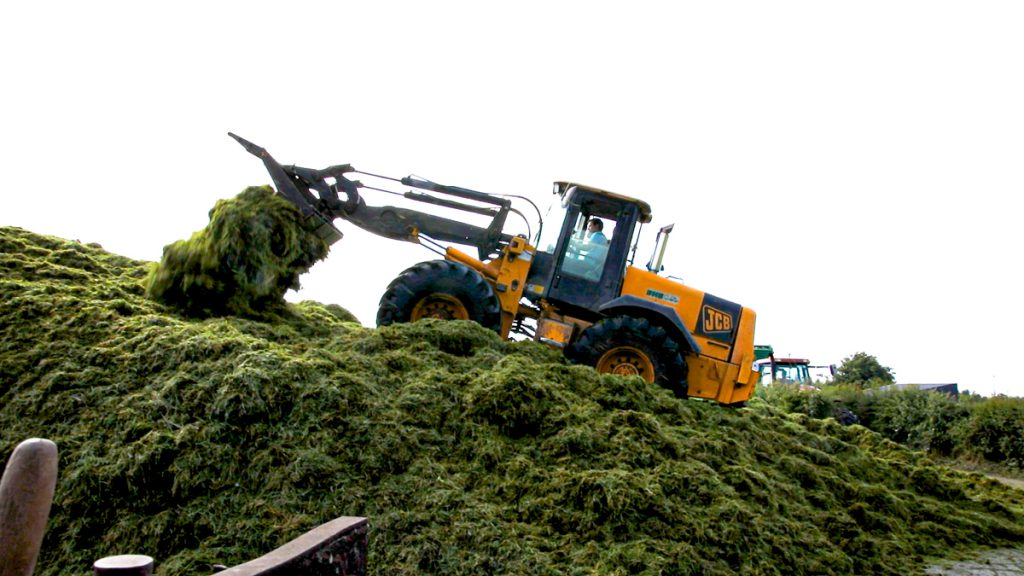Contractors have called for realism and a “bit of understanding” from some farmers amid a particularly hectic 2021, with skilled drivers having enough of excessive pressure being put on them from some quarters.
Speaking to Agriland on the matter, Mike Moroney, CEO of the Association for Farm and Forestry Contractors in Ireland (FCI), outlined the situation as it currently stands.
Noting that operators are beginning to look elsewhere for work amid a mad rush from a minority of customers, Moroney explained:
“This year it was particularly bad. That’s the message we were getting back from people, that there is an urgency to get work done that wouldn’t have been there before.
“In some senses it’s not always realistic, particularly when it comes to short-notice baling for paddocks.
Noting that a lot of farmers seem to be “driven by the grass meters” the FCI CEO highlighted that this is creating a new level of panic out there.

“They’re involved in discussion groups – which is great – but the discussion groups then become part of the frenzy to get something done quickly.”
This, he explained, creates a competitive element among farmers which in turn is creating a panic and a phone call to “get up here and get the baling done quickly”, which is not helping matters.
Some drivers are “getting fed up of the pressure” associated with this, Moroney added, noting: “There’s quite a bit of that type of pressure in terms of impatience and wanting things done yesterday and ‘why is the work not being done?’”
While there are still plenty of people who can drive a tractor and trailer, the real shortage is among skilled operators of loading shovels, harvesters and butterfly mowers, as well as those with experience to effectively operate a fusion baler.
In terms of where these drivers are going, Moroney said: “If guys or girls are getting any hassle, construction is booming as we all know so that’ll hoover up people if they want to make that move.”
In addition, with set working hours and weekends off, the construction sector is proving to be an attractive alternative for fed-up farm machinery workers.

There is also a number of forestry contractors’ workers moving on, due to the well-publicised uncertainty over licencing in the sector.
In terms of what the FCI is calling for to alleviate this situation, Moroney called for “a little bit of understanding and respect for what guys are trying to do for them”.
“They can’t be everywhere at once,” he added, noting that – going by comments from FCI members – a lot of the panic is driven by grass measuring in the dairy sector.
He stressed that contractors very much understand the pressure dairy farmers are under but a bit of mutual respect would go a long way.
“Will grass go off that much between 3:00p.m on a Friday and Saturday morning? But ‘it must be done straight away’ it seems to be. And a lot of it is related to baling as well, where bales are being rightly utilised better – but there’s also a cost factor to it.
“If you’re sending a guy up to a paddock on a Saturday evening and it’s a paddock that will only have two or three bales on it because it’s just gone a bit strong – that farmer is expecting you to do it for €12.50 a bale, which is to mow, row, pick up and bale it for that. You’re only getting €25 for your afternoon. A level of realism has to creep into it.
“This equipment is expensive and if guys are being driven to pick up small paddocks of grass at short notice – go in, cut it and pick it up quickly – there has to be a more realistic value put on that type of work, and that investment as well,” he stressed.

“If people are taking it to the extreme and expecting a contractor to go up and do the work for the same money as if you were going in for a proper crop of grass, that’s not realistic – and it’s not sustainable in terms of employing people and giving that kind of employment – you just can’t do it.
“The feeing is that it’s an increasing minority – it’s not the majority.
“Nobody knows more than the contractor how much pressure dairy farmers are under, because they’re in and out of there, they’re closely aligned with the business so they do know the pressures,” Moroney stressed.
“But everyone has to take a more realistic view as to where we’re at when it comes to that – because it has to be sustainable as well.”
